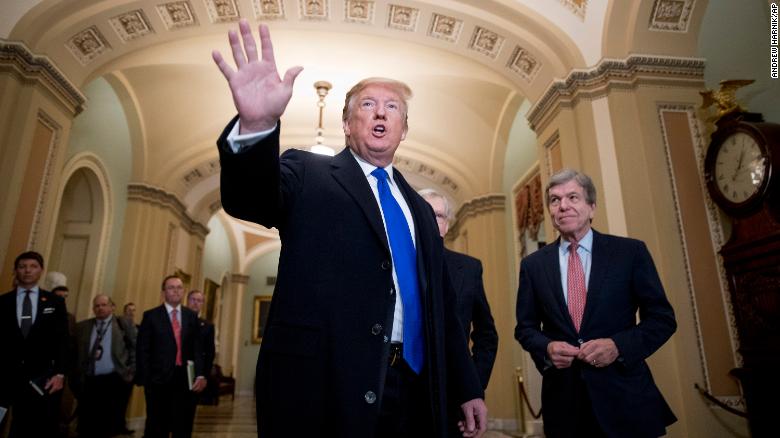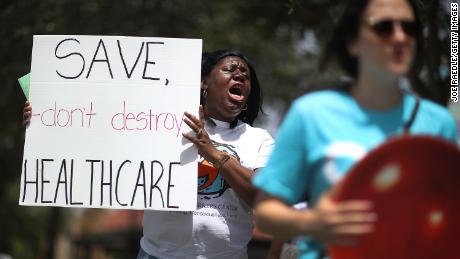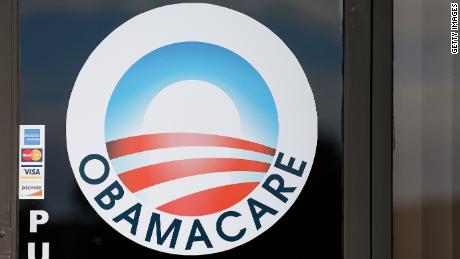(CNN)President Donald Trump has repeatedly promised to make health care better for all Americans, especially those with pre-existing conditions.
But while his administration has yet to unveil a plan, his Justice Department is now threatening to strip away coverage and benefits that many people have come to take for granted in the nine years since the landmark Affordable Care Act was signed into law.
The administration said Monday that the entire law should be struck down, a dramatic reversal of its earlier stance. In a filing with a federal appeals court, the Justice Department said it agreed with the ruling of a federal judge in Texas that invalidated Obamacare. Previously, the agency under former Attorney General Jeff Sessions had argued only that two key protections for those with pre-existing conditions could not be defended.
If the Trump administration prevails, the health care of nearly every American could be affected, though most don't realize it. While most people associate Obamacare with the individual health insurance exchanges and Medicaid expansion, it has far wider impact.
Obamacare has meant lower premiums, deductibles and out-of-pocket costs for the roughly 60 million senior citizens and disabled Americans enrolled in Medicare. And it helped close the gap in Medicare's drug coverage.
It slowed the growth of Medicare payment rates to hospitals and other providers, reduced payments to Medicare Advantage plans and improved benefits for enrollees. The Obama administration estimated in 2016 that the typical Medicare beneficiary pays about $700 less in premiums and cost sharing thanks to the Affordable Care Act.
Another popular provision: Children are allowed to remain on their parents' plans until they turn 26. Also, companies with at least 50 employees must provide affordable insurance to their staffers who work more than 30 hours a week. The law also prohibits employers from imposing annual or lifetime limits on benefits and caps out-of-pocket spending so those with expensive conditions don't exhaust their coverage.
Americans are also able to get a wide range of preventive care -- including annual check-ups, mammograms, cholesterol tests and flu shots -- and birth control at no cost. And it's helped combat the nation's opiod addiction by broadening Medicaid coverage to more adults.
Even the Trump administration is using the law to try to lower prescription drug prices.
And, of course, there are the millions of people who've gained coverage. More than 11 million people have signed up for 2019 policies on the Obamacare exchanges, and more than 12 million are insured through Medicaid expansion. The number of uninsured plummeted to 29 million last year, from 48 million in 2010.
If the law is struck down, roughly 20 million more people would be left uninsured, an increase of 65%, according to an Urban Institute report published Tuesday. And hospitals would see uncompensated care jump by $50 billion, or 82%.
But even more influential than the benefits Obamacare provides is how it has changed what people have come to expect in health insurance.
Prior to the law, insurers could deny people policies or charge them more based on their medical histories -- so those with acne as a teen could have trouble securing coverage on the individual market years later, for instance. Some 52 million non-elderly adults -- more than one in four -- have a condition that could have rendered them uninsurable before Obamacare took effect, according to estimates from the Kaiser Family Foundation, a nonprofit health care research group.
The Affordable Care Act stopped those practices, requiring insurers to cover all applicants and provide comprehensive benefits.
The popularity of the pre-existing protections provisions helped doom congressional Republicans' attempts to repeal the law in 2017 and helped Democrats recapture control of House last November. Even now, Republicans often emphatically state that they want to maintain those protections.
It would be hard to turn back the clock now. At least 60% of those who initially say they support the Texas judge's ruling turn against it once they hear that it would mean insurers could charge more or deny coverage to those with pre-existing conditions and that young adults would no longer be able to stay on their parents' insurance, according to a Kaiser Family Foundation poll in January.
The decision also gives Democrats more ammunition to say they are the party that will protect people's health care, despite Trump's claims. Already, House Speaker Nancy Pelosi on Tuesday unveiled a package of bills aimed at bolstering Obamacare.
"This sets up a clear contrast for the 2020 general election on health care," tweeted Larry Levitt, senior vice president at Kaiser.





















